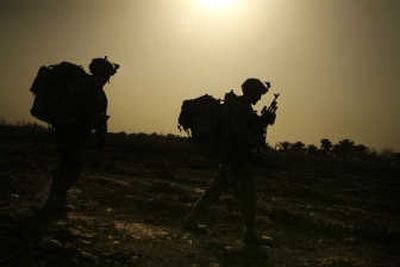U.S. commanders seek pause in troop reductions

BAGHDAD – Senior U.S. military commanders here say they want to freeze troop reductions starting this summer for at least a month, making it more likely that the next administration will inherit as many troops in Iraq as there were before President Bush announced a “surge” of forces a year ago.
There are about 155,000 U.S. troops in Iraq now, with about 5,000 leaving every month; the proposed freeze would go into effect in July, when troops levels reach about 130,000. Although violence is dropping in Iraq, commanders say they want to halt withdrawals to assess whether they can control the situation with fewer troops.
Gen. David Petraeus, the top U.S. commander in Iraq, will probably argue for what the military calls an operational “pause” at his next round of congressional testimony, expected in early April, another senior U.S. military official here said. Defense Secretary Robert Gates and top military officers have said they would like to see continued withdrawals throughout this year, but Bush has indicated he is likely to be guided by Petraeus’ views.
Bush trumpeted the success of his Iraq strategy during his State of the Union address this week. But if he agrees with Petraeus’ expected recommendation, the administration will not be able to reduce troop levels much below what they were in early 2007, when Bush began to deploy additional forces.
Officers are still debating the length of the proposed freeze, with some arguing for 90 days and others saying it could be as short as 30. Because it can take as long as 75 days to withdraw a brigade, a freeze could result in troop levels remaining steady through most of the rest of Bush’s term, deferring any continued drawdown to his successor.
Military planners fear that maintaining the current pace of withdrawals could lead to an unstable situation just as a new administration takes office in January.
“So far, so good,” Lt. Gen. Raymond Odierno, the operational commander of U.S. forces in Iraq, said in an interview here earlier this week. “I feel very comfortable with where we are and our plans to reduce to 15 brigades by July.”
But after that, Odierno added, “I believe there should be a period of assessment.” He said such a pause will be necessary because the impact of the current U.S. troop reductions on Iraqi army and police forces, on the Iraqi government and on the overall security environment won’t be immediately apparent.
Privately, White House advisers say Bush is loath to do anything that would jeopardize what he sees as hard-won security gains and predict he would be very receptive to any go-slow suggestion from Petraeus.